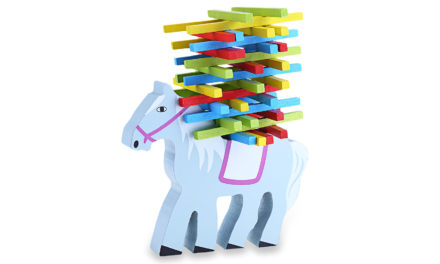Those of us who have the pleasure and challenge of raising young children are often vigilant about supervising them, especially when they accompany us on visits or shopping trips. We feel responsible for their behavior and actions, whether they are on the street, in a store, or visiting somebody’s home.
The challenge with children is that they are emotion-driven and have no regard to how their actions affect others. They may start crying or talking loudly enough to disturb others when you take them to a concert.
In stores, they can touch, hold, remove and drop items from the shelves. They might trot through narrow aisles, breaking merchandize. During visits to others’ homes, they will have no problem dipping their fingers into the dessert cream.
Children’s behavior is based solely on their whim with no consideration of others.
As good parents, we try our best to take charge of our children and not allow them to disturb those around us or to damage store merchandize, or decimate the cake decorations. We feel responsible for our children and do our best to keep them from disturbing, distracting, or annoying others.
Now, let us consider our emotions. They often express themselves as children do, with little consideration to others. Consider the following scenario:
You are sitting at your desk, concentrating on a task at hand. Your colleague walks in to ask you a question. You get angry at being disturbed and lash out at him/her for bothering you with a “stupid” question. This is the “anger” emotion within you, expressing itself with little consideration for your colleague — why he/she approached you and how he/she will feel about or react to your rude response.
Here are a few other examples from everyday life:
- Your husband forgets your birthday…ouch! You feel betrayed, disappointed, and angry. With little interest in the causes of this forgetfulness, you sulk, refuse to talk, and dampen the mood of the family.
- You had a bad day at work. You go home agitated and distressed. You do not smile. You yell at your spouse for not having the dinner ready, and scream at your children for being noisy.
- Your colleague gets the promotion you had hoped to receive. Your jealousy, fueled by low self-esteem, starts acting up and you give your co-worker the “cold shoulder” and refuse to cooperate with him/her. You then go around telling others how undeserving he/she was of that promotion.
- Your child comes home with low grades. In a burst of disappointment triggered by pride (how can my son embarrass me by failing at school) you tell him off, labeling him as “stupid”, a “failure” and one who will “never make it in life”. You break his confidence and reinforce his low self-esteem, further reducing his chances of doing better next time around.
- You ask someone to help you with a small loan. He refuses. You are deeply disappointed because you assumed that he was your friend and that friends help one another in times of need, soo you vent your disappointment by badmouthing him to others. Your friendship of many years becomes damaged.
In such situations, our emotions (anger, jealousy, fear, disappointment, etc.) are unleashed. They take over and hurt loved ones, damaging precious relationships and disturbing the tranquility of others.
Emotions, like children, need to be managed. We need to train ourselves to take charge of our emotions, and express them constructively without allowing them to cause collateral damage.
















